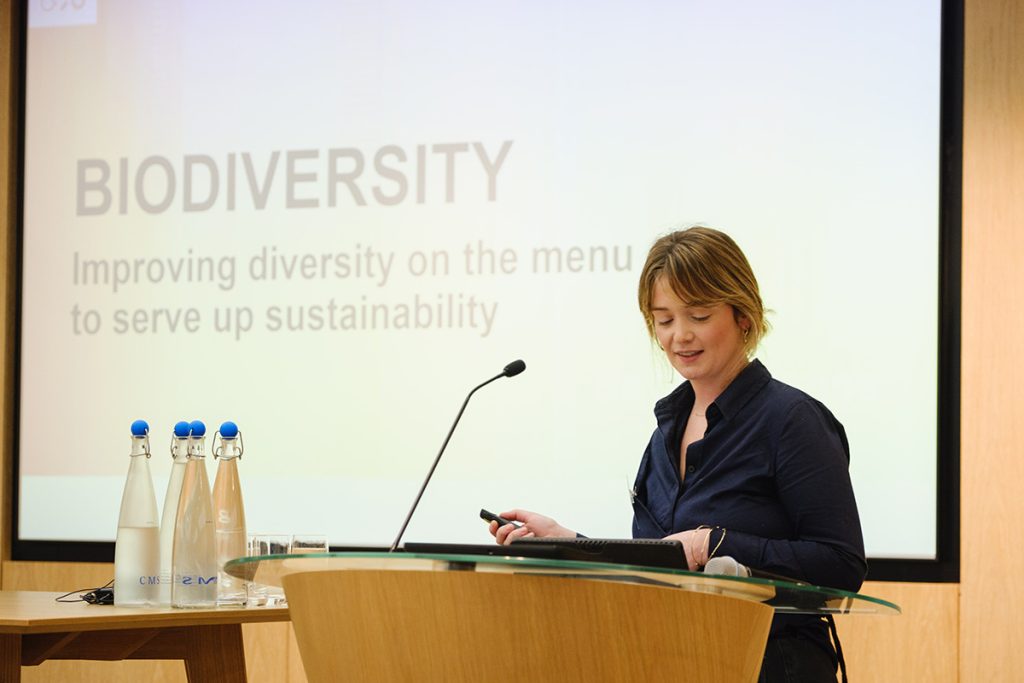The food system as we know it is broken (Lang, 2020; Hawkes, 2018; Nestle 2020; Clapp 2020), it accounts for 25-33% of the world’s global carbon footprint (Poore & Nemechek, 2019; Crippa, 2021) the agricultural industry has one of the highest rates of modern-slavery (ILO, 2022) and food packaging is the world’s largest source of plastic pollution (OECD, 2022).
At Gather & Gather we take sustainability seriously and have worked hard to introduce a holistic approach to the food & drink we serve at University College London encompassing strategies to reduce our environmental, social, and economic impacts.
Read on to discover how we are reducing our impacts and innovating to create a future-focussed food offer on campus.
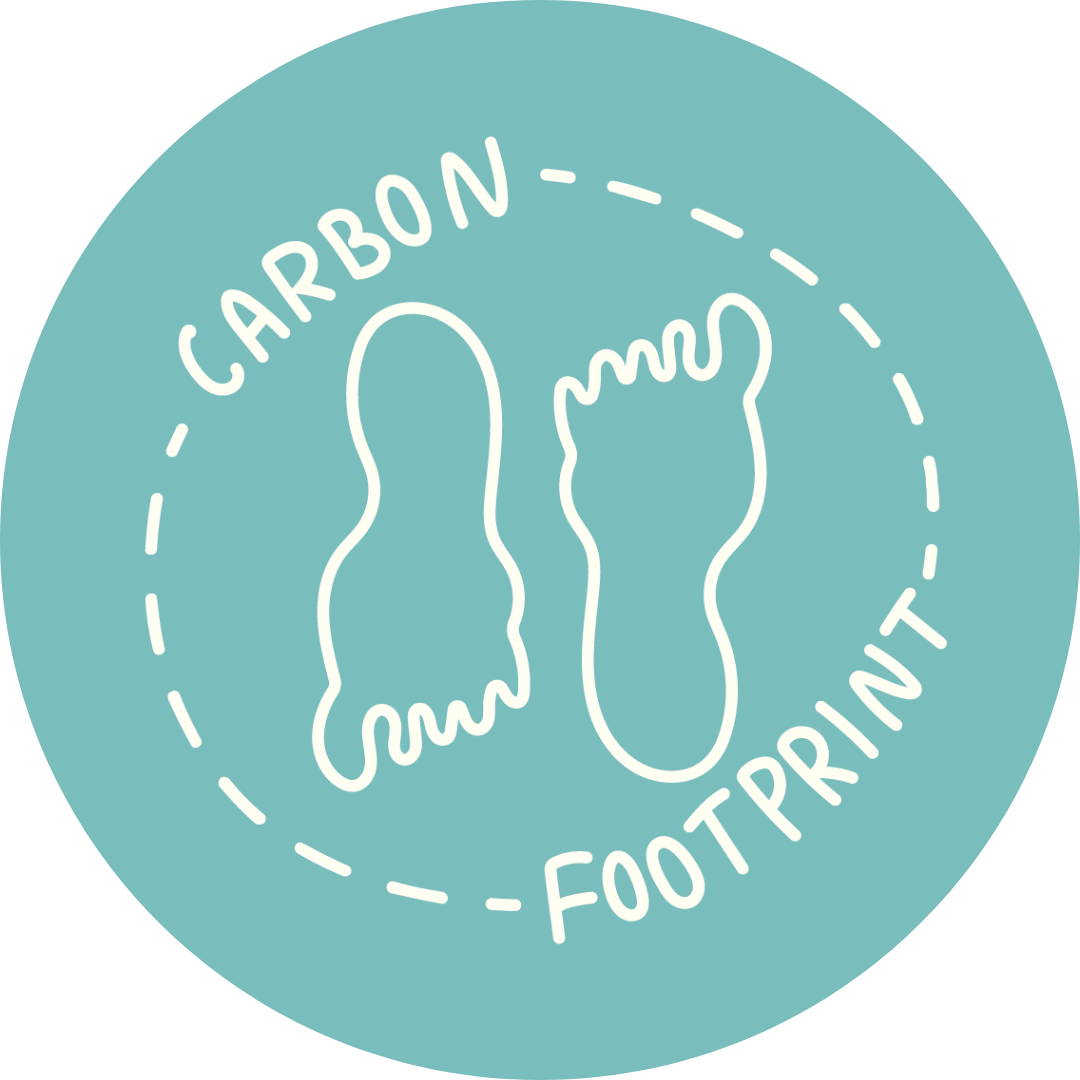
Dishes that celebrate fruit, vegetables, pulses, and grains have a lower environmental impact than those which use dairy products and/or meat (Poore and Nemecek, 2018). In collaboration with UCL, our chefs have worked hard to shift the narrative on plant-based dishes, celebrating delicious diverse ingredients that help us to make substantial carbon savings.
We carbon label all food made on site and have integrated their carbon values into our EPOS systems allowing us to track the carbon impact of sales. We set our chefs targets to reduce the carbon impact of their menus termly.
Our chefs have targets to include Future 50 ingredients in their dishes, these are 50 plant species identified as promoting biodiversity, having low carbon impact, and being nutritional powerhouses (WWF, 2019).
We know that our impact lies in our sales, so we track our sales of these categories, setting targets to increase the sales of our vegan and vegetarian products. In 2025 we supported a research trial in collaboration with UCL’s Centre for Behavior Change and our partner, ReeWild, to bring a sustainable loyalty-points scheme, Planet Points, which rewards customers for low-carbon purchases.
Read about the Planet Points Trial here
Download the ReeWild app and track your carbon footprint at UCL
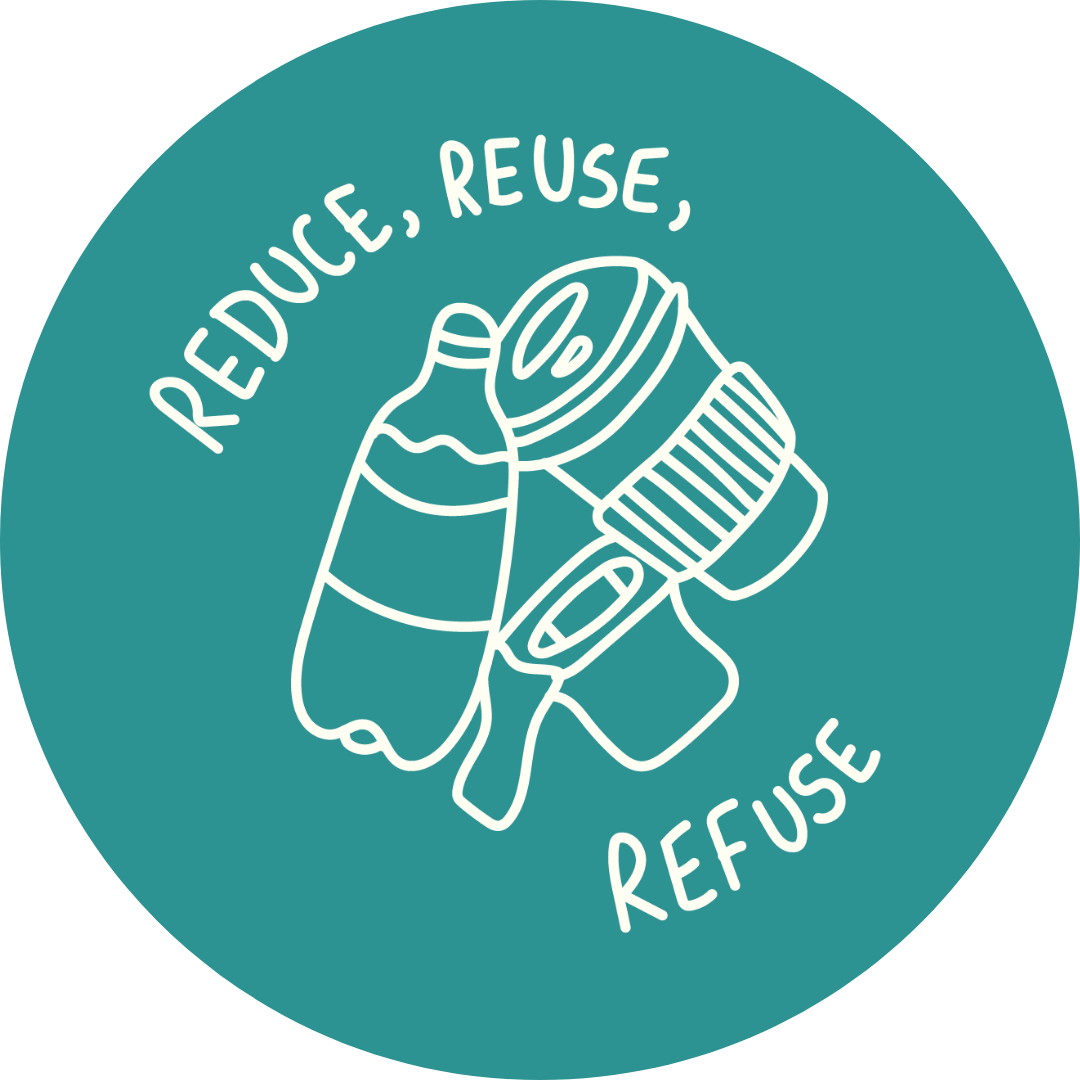
Recycling is often viewed as the solution to waste in the U.K., however, it’s not an activity that humans are great at, in 2019 only 44% of recyclable materials were recycled in the U.K. (Gov.uk, 2019), recent geopolitical events have meant that our waste can no longer be exported, we need to reduce the sheer volume of waste that we produce (Statista, 2021).
We actively try to reduce the non-food waste associated with our operations. All barista-made drinks are available in ceramic cups to drink-in. All meals in our refectories are served on ceramic serve-ware by default.
All packaging is assessed and we seek recyclable options wherever possible.
Our Hospitality offer is disposable free by default.
In 2024, we ran a successful trial to reduce disposable coffee cups, implementing a deposit-return scheme, Return to Earn, at UCL East.
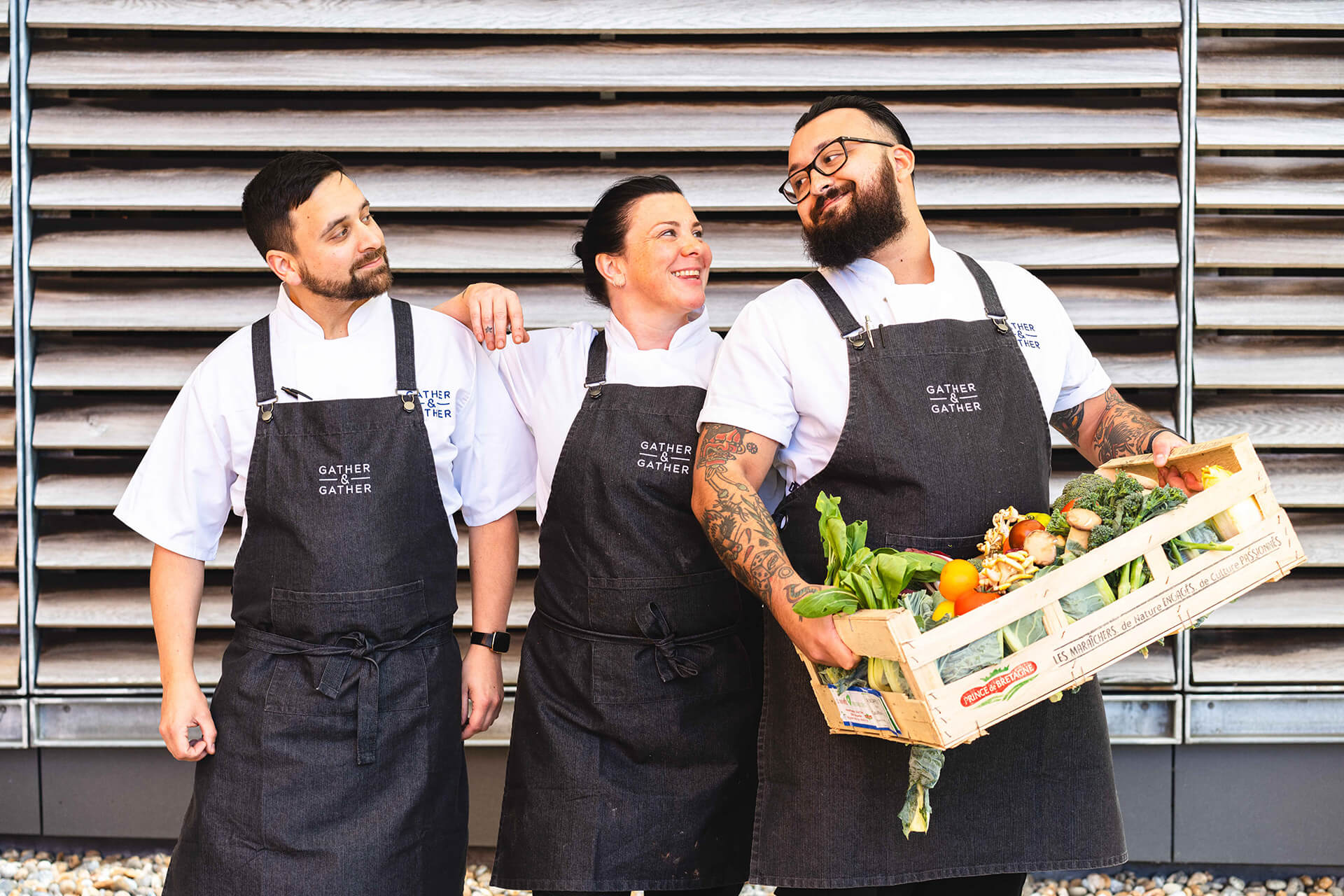
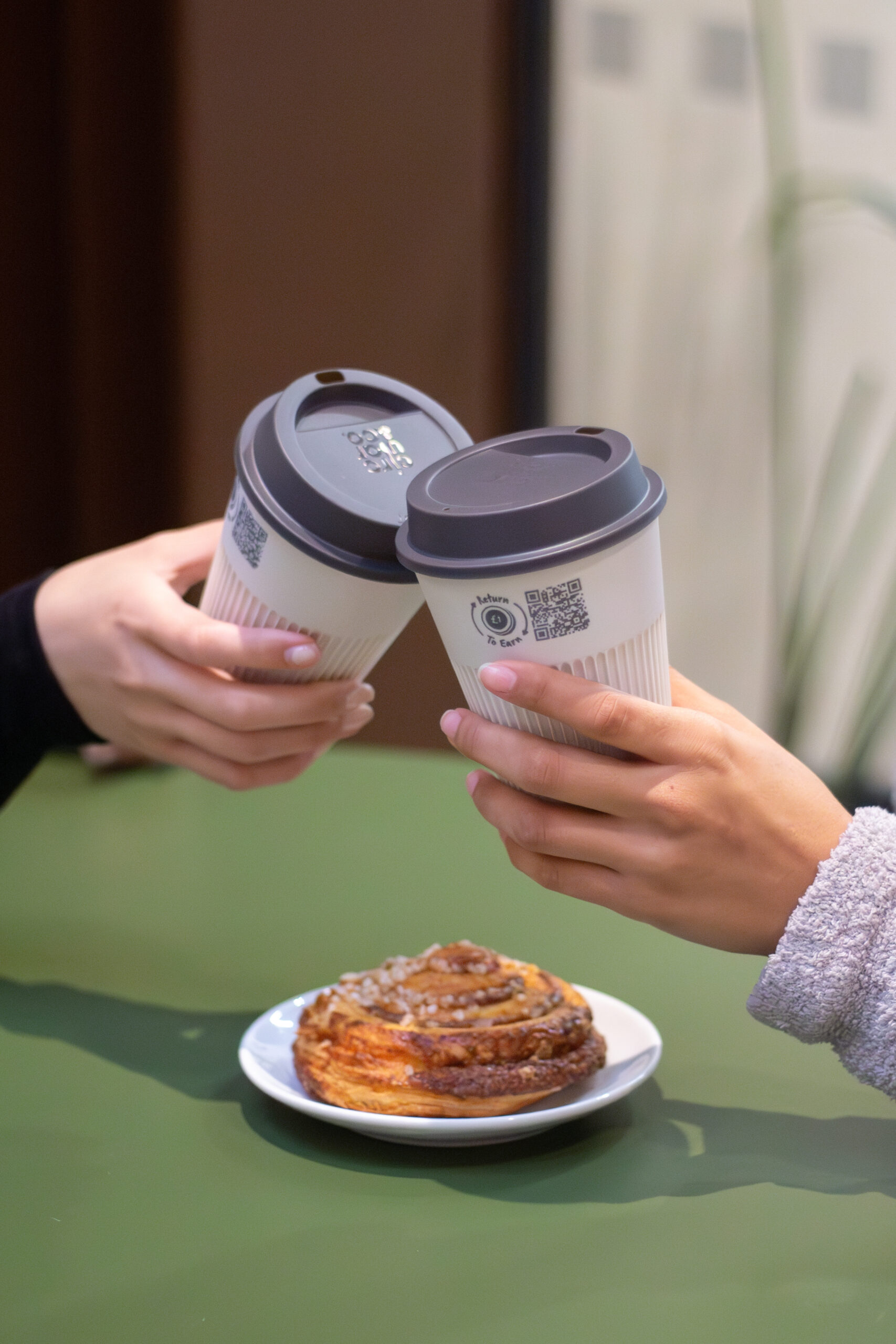
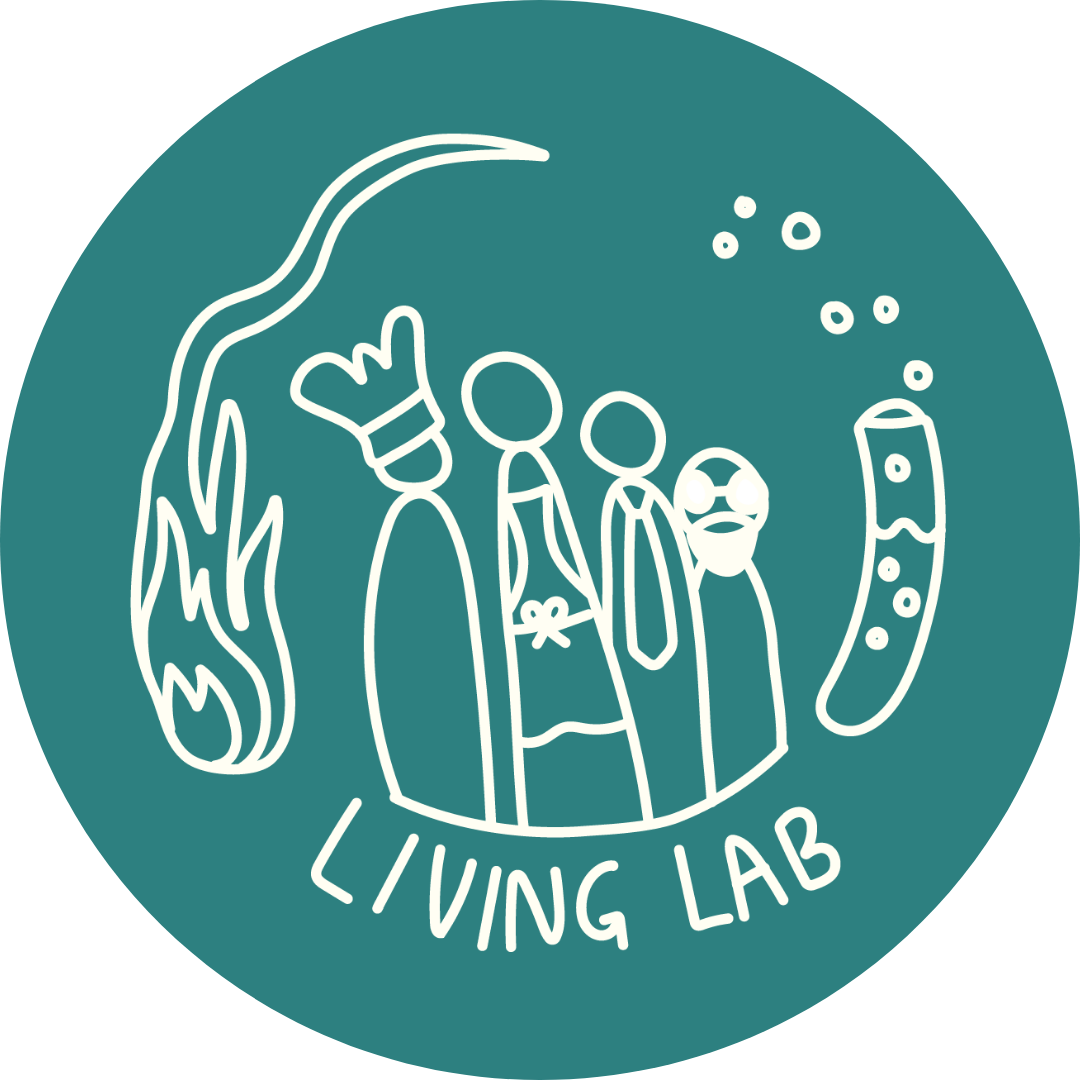
Sustainable food literacy has been identified as a key measure to promote sustainable diet practices (Teng and Chih, 2022), in order to support the UCL community to make sustainable lunch choices, we use a range of icons to guide decision making. Carbon, future 50, halal, red-tractor, and vegan/vegetarian icons are all present on our menu.
We work with Sustainable Food Ambassadors to spread the word about the environmental & health impact of food and run communication campaigns to encourage sustainable eating. Sign up to be a Sustainable Food Ambassador here.
Our kitchens & cafes are open to all students and staff to conduct their research, please email Cicely to chat about your research area and how we can facilitate your study.
We work closely with Sustainable UCL, tracking our environmental, social and economic impact on the UCL community with monthly reports. We also co-chair UCL’s Sustainable Food Working Group, and developed the Sustainable Food Town Hall series in 2025.
Data sharing and transparent reporting are key to achieving climate goals, if you have any questions about the data we collect, or want to see up-to-date data contact Cicely.
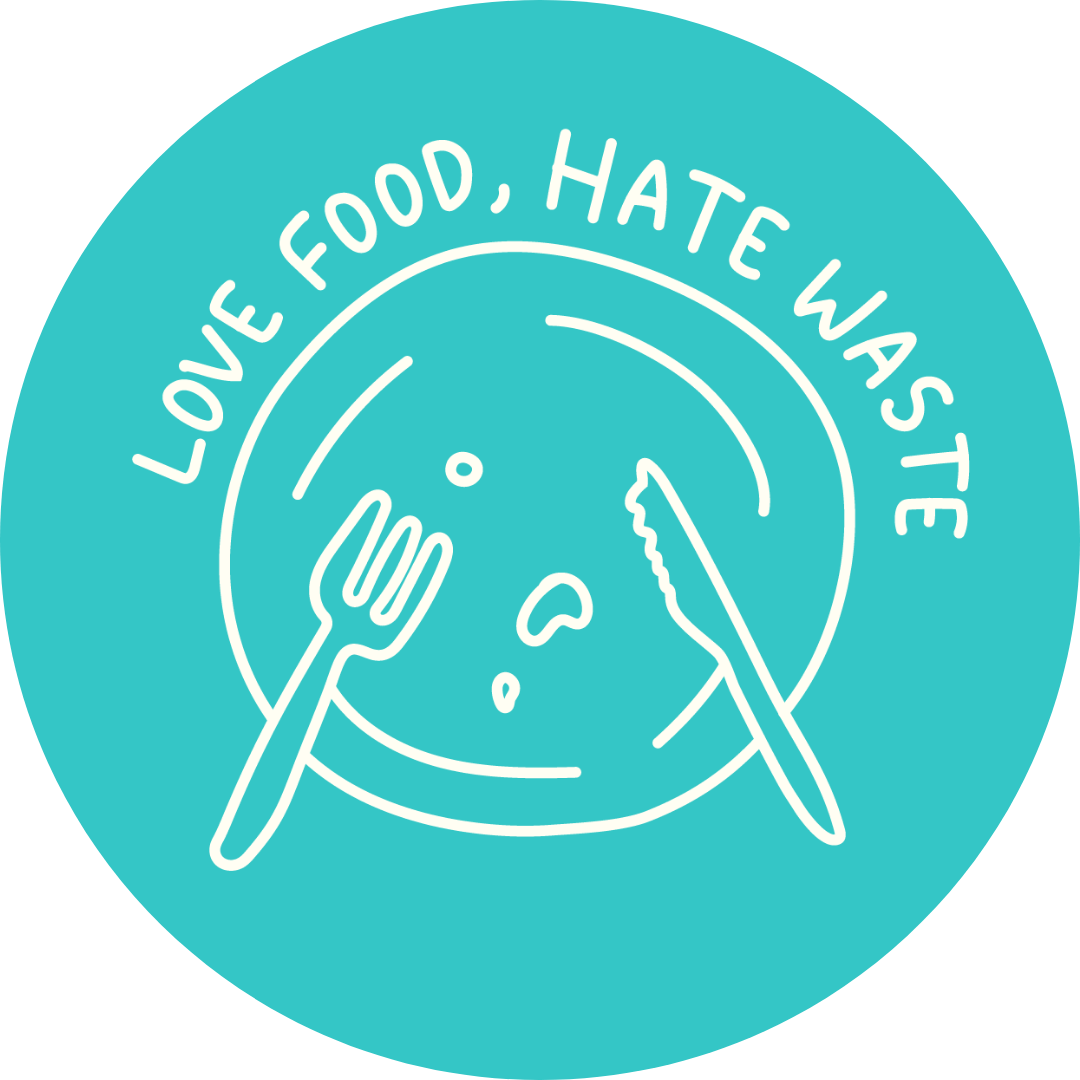
1/3 of food that is produced globally every year is wasted (FAO, 2020), this is not only a human tragedy when there are people suffering from malnutrition, but also an environmental tragedy. This is an issue close to our business, in the U.K. 75% of the food thrown away in the hospitality sector is avoidable and edible (WRAP, 2022).
We work hard to produce delicious food on campus, and hate seeing it go to bins not bellies. We measure our prep, plate, over-production and spoilage food waste in order to capture granular detail on our food waste which is reported monthly to Sustainable UCL.
All edible food waste (in our retail outlets & hospitality department) is redistributed. either through our partner Zero Food Waste Society at Bloomsbury or discounted through the Too Good To Go App at UCL East. Across both campuses all food is discounted on expiration date using the LOVEFOODHATEWASTE 30% offer.
All our food waste is recycled by going to Anaerobic Digestion, or in the case of our coffee beans, being turned into fuel, some of which runs London buses.
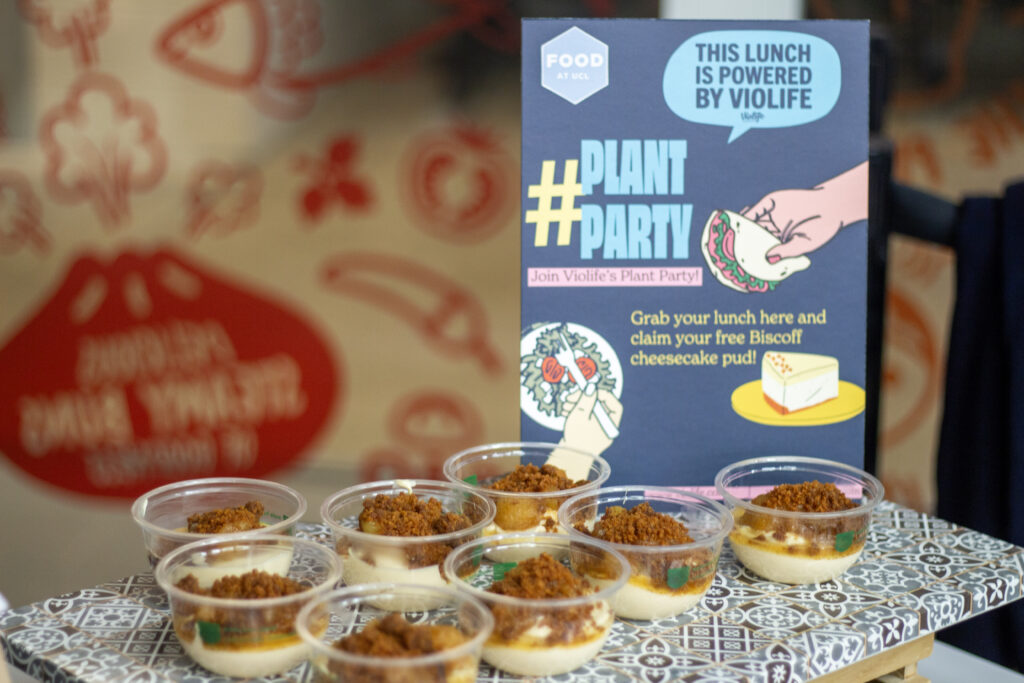
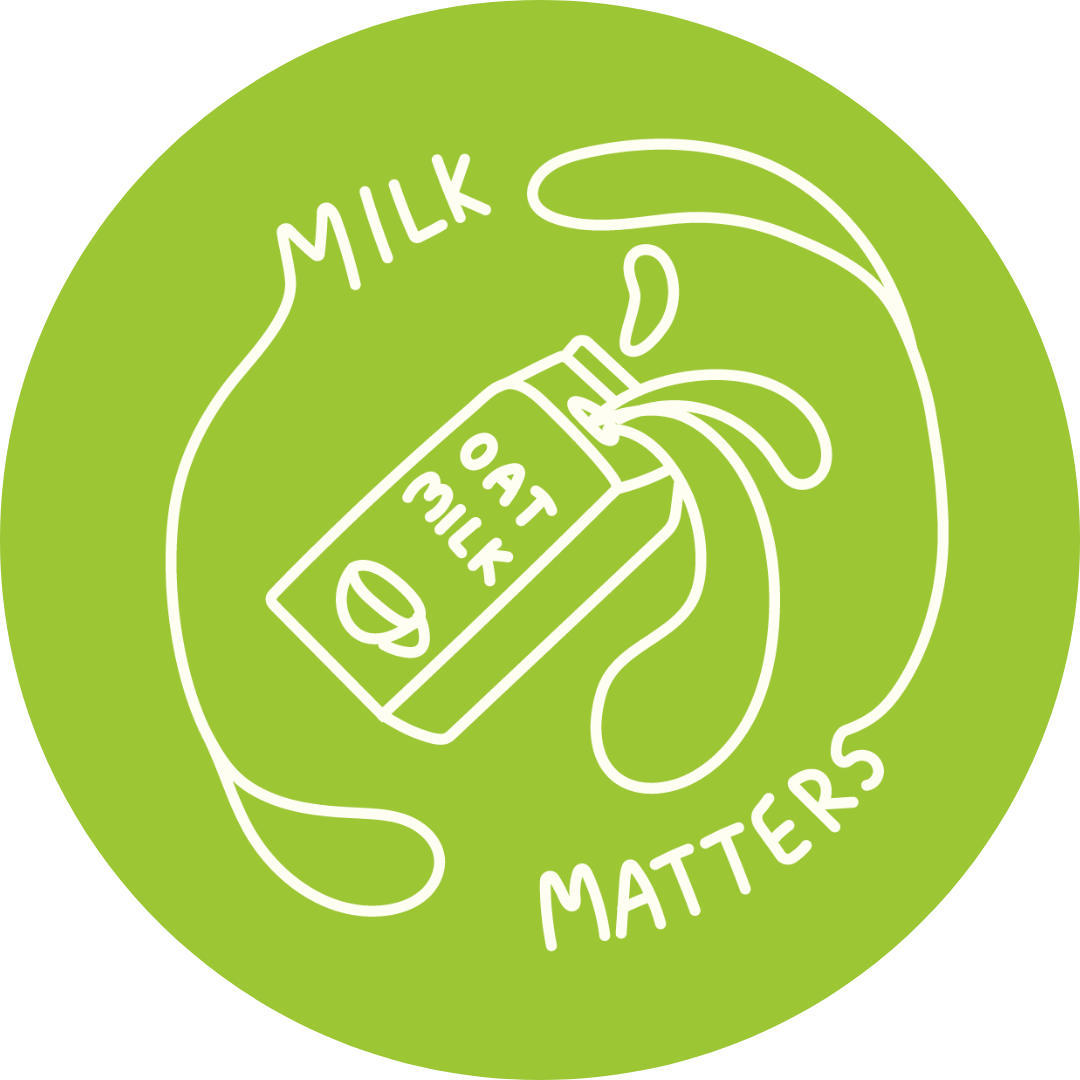
At UCL, we ensure that our refectory menus & retail ranges consist of 50% or more vegetarian and vegan dishes, and 50% or less meat-based dishes. All meat-based dishes are priced 15% higher than their vegan counterparts whilst alternative milks are offered at the same price as dairy.
We’ve worked hard to source red-tractor certified halal meat across our outlets allowing us to meet our environmental standards and provide inclusive meat offerings.
All coffee outlets offer coconut milk, a grain-free, vegan and kosher milk, ensuring all of UCL’s community can enjoy their daily coffee with us.
We donate our surplus sandwiches, sushi & salads to St Mungo’s Hostel & Life After Hummus in partnership with Zero Food Waste Society. Both of these charities are based in the Camden/Bloomsbury area.
Sign up to be a Zero Food Waste Volunteer
Our Brew Bar in the Bartlett School of Architecture is staffed by Well Grounded, a Camden-based social enterprise that supports people into employment. We use Caravan coffee in selected outlets, a Camden-based roastery, helping us to support the local economy.
Our hospitality offer, Cakes with a Conscience, is in partnership with Luminary Bakery, a Camden based charity supporting women who have experienced disadvantage into hospitality.
We organize cooking demonstrations for our community to support sustainable food skills.
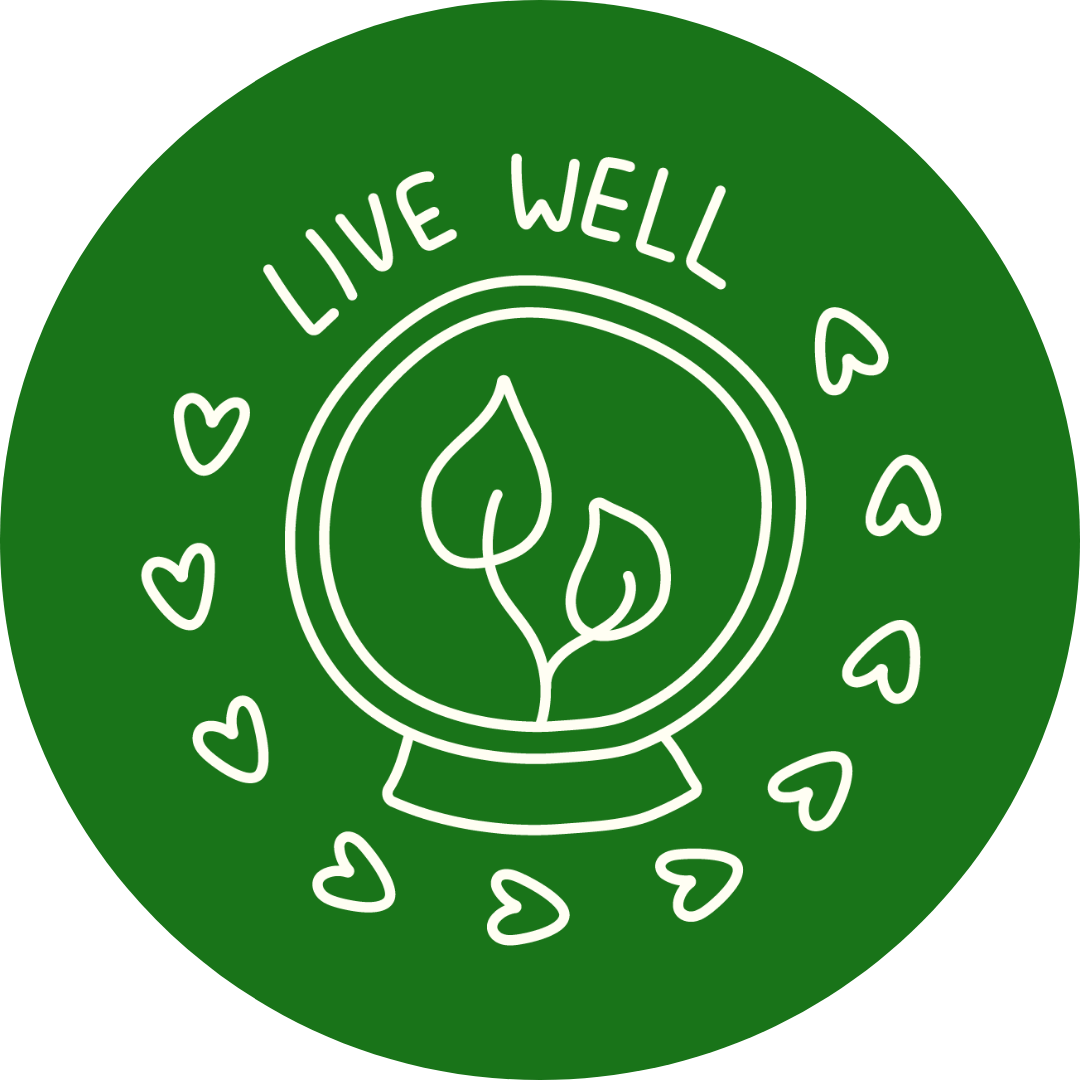
We use Future 50 ingredients wherever possible in our dishes. These are 50 ingredients identified by WWF as being better for people and planet promoting sustainable diets. Keep a look out for signage in the refectories to highlight when a dish contains a Future 50 ingredient.
When we add new products to our retail lines, we always look for healthier options to support a nutritional food environment. 40% of our procurement spend on ‘Snacks, Confectionary & Soft Drinks’ in 2022 was on healthy products.
We label our refectory and café menus of food made-on-site with calorie information* to support students and staff looking for a lighter lunch.
*as per government legislation.
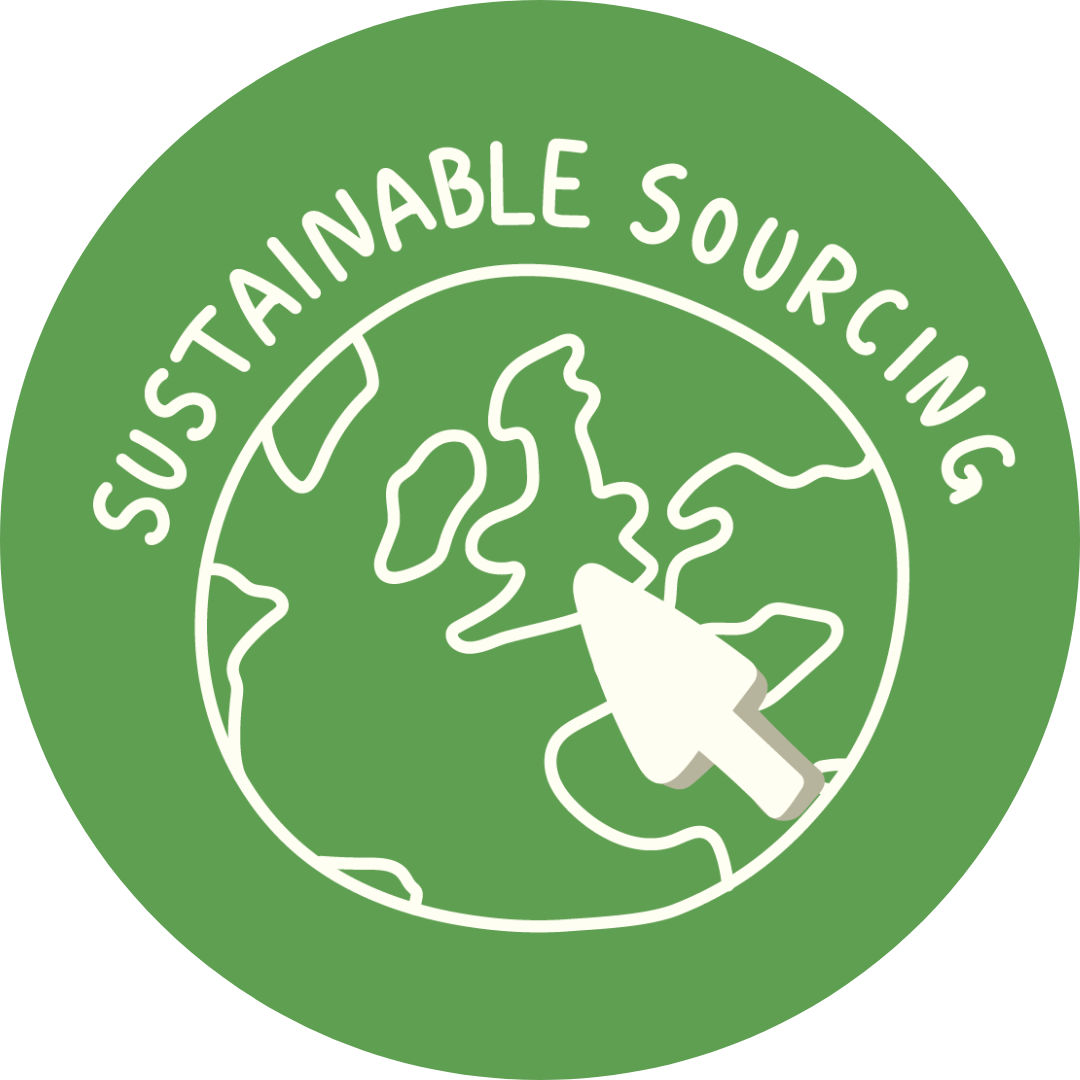
A large part of a food businesses’ environmental impact is found in their supply chain, as well as being a source of financial risk due to the instability of global supply chains (Garnett, 2020).
We’ve worked hard to reduce the impact of food-miles on the food we serve, all food we purchase comes in consolidated bi-weekly deliveries to reduce the number of times lorries drive to us. And on campus 100% of deliveries are on foot or from our Electric vans. We banned air-freight ingredients in 2024.
We align with certifications in order to ensure that the food we serve is ethically sourced, all meat on campus is certified Red Tractor, all the seafood we serve is rated ‘Good’ by the Marine Conservation Society and we try to avoid the big 5, all our eggs are certified free-range, and products that carry a high risk of human-exploitation are certified Fairtrade.
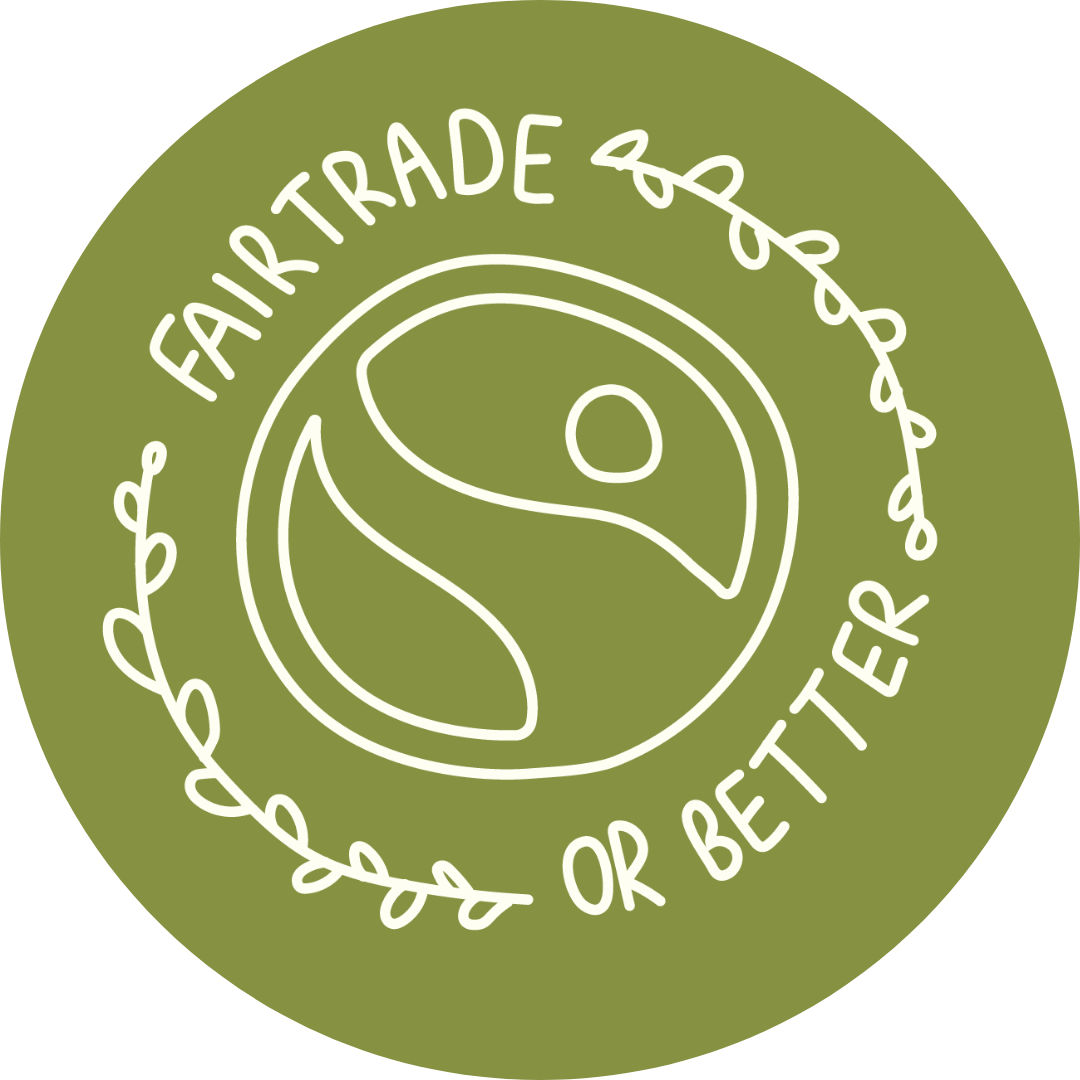
We ensure that our procurement of chocolate, bananas, coffee, tea & sugar for food served on site is certified Fairtrade or better, thus allowing us to determine that those commodities were produced in an fair way. Our signature coffee blend, Circulo Coffee from Union is certified Fairtrade, and is grown in Peru by a Union of over 70 small-holder farms, it is then roasted in East London, and brewed for you here at UCL – grab a cup & sip sustainably.
We are actively involved in Fairtrade Fortnight, serving up tasty deals & special bakes to encourage the UCL community to support Fairtrade.
To learn more about why Fairtrade is so important, visit their website.

Food Made Good
We undertake a biennual audit by the Sustainable Restaurant Association in order to achieve our Food Made Good Sustainability Rating. This is considered the Gold-Standard certification in the Hospitality sector, and assesses our operations, governance, and influence in sourcing, social impact & environmental impact. In 2021 we were awarded the top score, 3*, this was repeated in 2023 when we were awarded 3*’s again.
People & Planet
We worked with Sustainable UCL to complete the People & Planet Audit, scoring 90% for Sustainable Food.
Sustainable Food Working Group
We are a key member of UCL’s Sustainable Food Working Group working with UCL & the Student’s union to drive sustainable change across campus.
Sustainable Food Town Hall
We founded the Sustainable Food Town Hall series in 2025 to gather community feedback on the food environment at UCL.
Reporting
Read our 2024-2025 Annual Sustainability Impact report for our work at UCL
At UCL we take the sustainability of the food and drinks we offer very seriously, so seriously in fact that we have a dedicated sustainability manager, Cicely.
Cicely has a MSc from City University in Food Systems and Politics.
Cicely oversees our food and drink offering ensuring that we meet the standards set out in UCL’s Sustainable Food Policy . We strive for excellence, and continuously innovate to reduce our impact.
You can email Cicely with any queries.
Download our sustainability impact report for academic year 2023- 2024
